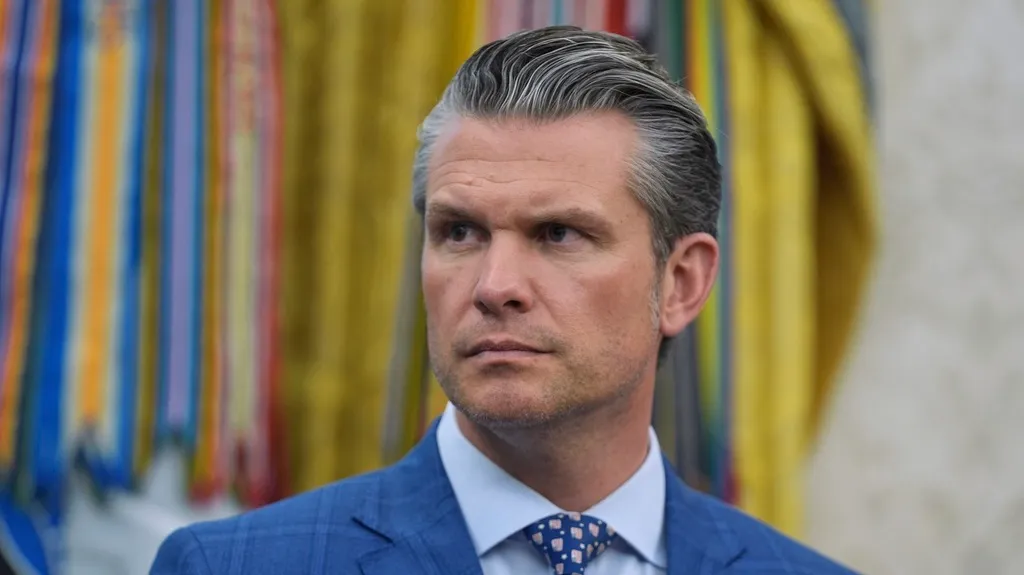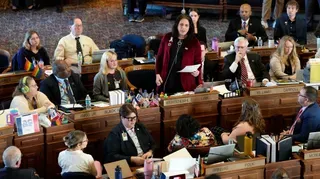August 17, 2012
Hepatitis C Outbreak Could Boost Regulation Bill
Jason St. Amand READ TIME: 3 MIN.
CONCORD, N.H. (AP) - The case of a medical technologist suspected of infecting patients with Hepatitis C could boost momentum for federal legislation requiring medical imaging and radiation therapy workers to meet standards before their employers receive Medicare reimbursements.
David Kwiatkowski is accused of stealing drugs and contaminating syringes used on patients at Exeter Hospital in New Hampshire, where 32 people have been diagnosed with the same strain of hepatitis C he carries. He previously worked at 18 hospitals in seven other states, moving from hospital to hospital despite having been fired twice over allegations of drug use and theft.
"Unbelievable," said U.S. Rep. John Barrow, a Georgia Democrat and lead sponsor of the legislation. "That's what happens when you have incredibly important, sophisticated work being done by folks who don't have to be trained or certified or qualified to do it."
Barrow's comments came one day after a story by The Associated Press detailed how a lack of regulation, poor communication and Kwiatkowski's own lies helped him slip through the cracks.
Kwiatkowski worked as a cardiovascular technologist, one of several specialized positions within a broader profession. According to the American Society of Radiologic Technologists, 45 states regulate at least one type of job involving medical imaging or radiation therapy. But education and certification standards vary widely. Alabama, Idaho, Missouri, North Carolina, South Carolina and Washington, D.C., have no regulations.
The organization has been advocating for years for a federal law that would direct the Department of Health and Human Services to create uniform standards that hospitals would have to meet if they receive Medicare payments. The latest version was introduced in June by Sens. Mike Enzi, R-Wyo., and Tom Harkin, D-Iowa. Barrow is one of 130 co-sponsors on the House side.
Though Congress failed to pass any of the previous versions, no significant opposition has emerged over the years, said Christine Lung, the society's vice president of government relations. She hopes the Kwiatkowski case will add some traction.
"This is an issue that just hasn't floated up into national prominence or attention," she said. "I think it's going to take situations like Mr. Kwiatkowski ... to really make the public sit up and take notice."
Members of New Hampshire's congressional delegation were unanimous in calling the allegations about Kwiatkowski disturbing, but none have taken a position on the legislation.
Republican Sen. Kelly Ayotte said she would carefully consider any legislative remedies, but "the responsibility to help prevent such incidents ultimately rests with hospitals, which should conduct stringent background checks on potential employees and maintain strict oversight of narcotics and equipment."
John Billings, chief of staff to Republican Rep. Charles Bass, offered a slightly different take.
"While medical licensing laws and regulations have traditionally been developed at the state level, Congress has an important oversight role in ensuring patient safety across the nation," Billings said.
Kwiatkowski, who was arrested in July and charged with drug theft and tampering with a consumer product, told investigators he did not steal or use drugs. He has declined to comment, as have his court-appointed lawyers.
Meanwhile, thousands of hospital patients in eight states - Arizona, Georgia, Kansas, Maryland, Michigan, New Hampshire, New York and Pennsylvania - are being tested to see if they, too, were infected with hepatitis C, a sometimes life-threatening virus that can destroy the liver.
In New Hampshire, public health officials said Wednesday that genetic sequencing has confirmed another patient shares the same strain of hepatitis C as Kwiatkowski and the 31 previously confirmed cases, though the newly announced case is a bit different. According to the Department of Health and Human Services, the patient was treated at the hospital's cardiac lab before Kwiatkowski's reported April 2011 start date, though the patient was still in the hospital when Kwiatkowski began work.
To rule out any other staff, the state is recommending that certain other hospital employees get tested.





